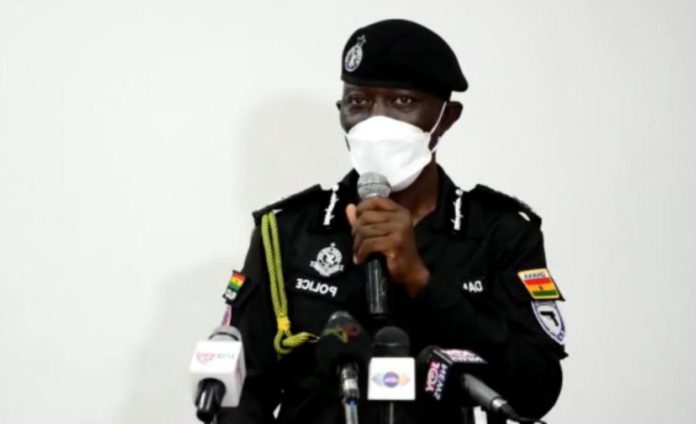The Inspector-General of Police (IGP), Dr George Akuffo Dampare, has said the police have a job to do and are mandated to effect arrest any time of the day, especially when people fail to honour invitations extended to them.
He said no one is above the law and, therefore, the laws must be made to work in the country.
Consequently, he impressed on media associations to make it clear to their members that the law would take its rightful course when members of the media are found on the wrong side.
The IGP said this when the Police Administration met some members of the Ghana Journalists Association last Friday to discuss how the police and the media could complement each other’s functions to promote peace and security for the development of the country.
Also at the meeting were the Ghana Independent Broadcasters Association and the Private Newspapers Publishing Association of Ghana.
The discussions centred on the enforcement of laws in the area of the arrest and prosecution of journalists who contravene the laws of the state, the protection of press freedom, the promotion of police-media relations, among others.
Dr Dampare said media institutions should boldly condemn unprofessional acts that bordered on criminality, since leaving such conduct uncommented on embolden the people who engage in them.
He also suggested that education on criminality be intensified, media practitioners should be held accountable for their actions and supporters of media practitioners who contravened the law must also be condemned since it breads irresponsibility.
The IGP said media professionalism meant journalists had the responsibility to verify the information they put out.
New course
The Director-General of the Public Affairs Directorate of the Ghana Police Service, Deputy Commissioner of Police (DCOP) Mr Kwesi Ofori, said in recent times, the media had started charting a new course with the police in the promotion of law and order, with the police appreciating the work of the media, unlike in the past when the police and the media were at crossroads.
That partnership, he noted, had created a congenial environment for the media in particular to function, which effectively had improved Ghana’s rating internationally as a place for media freedom.
Responsibility of media
The President of the GJA, Mr Affail Monney, re-echoed the responsibility on the media, that in as much as journalists sought freedom within which to operate, they also had a duty to be responsible.
He, however, indicated that the arrest of media practitioners should not be carried out in a manner that offended the dignity of the persons involved.
He was of the view that if the police worked in collaboration with media leadership to bring offending journalists to book, it would go a long way to strengthen the relationship between the police and the media.
The police, he said, should not be seen to be using high-handedness to deal with members of the media.
Agreement
At the end of the meeting, the police administration and the leadership of the media agreed in principle that no one was above the law and, therefore, the laws must be made to work.
That notwithstanding, they agreed that the enforcement of the law should not be seen to create a rift between the police and the media.
It was also agreed that for effective partnership in the promotion of law enforcement, the police must fall on the media leadership to produce media practitioners wanted by the police to assist in investigations.

